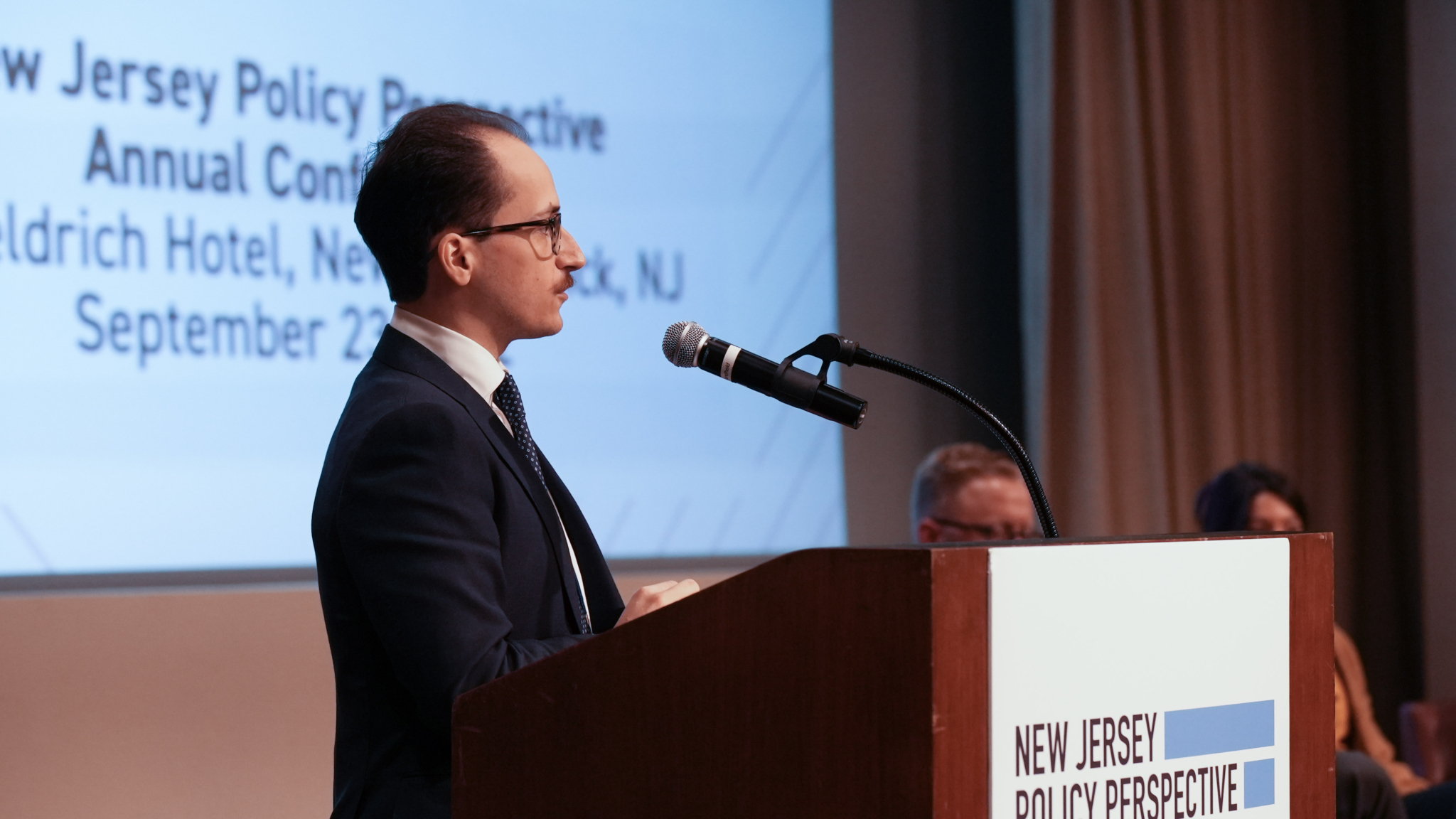TRENTON, NJ (June 1, 2023) – New Jersey Policy Perspective (NJPP), a nonpartisan think tank dedicated to advancing economic and racial justice, is pleased to announce the promotion of Louis Di Paolo to Vice President and the addition of Awinna Martinez as the organization’s new Policy Director.
As Vice President, Louis Di Paolo takes on a more formal role in guiding NJPP’s strategic direction and policy agenda in addition to leading the think tank’s communications department. In his previous position as Communications Director, Louie played a critical role in developing messaging and communication strategies to promote NJPP’s research and shape public discourse on pressing policy issues. Louie was a leading figure in the successful campaigns for the $15 minimum wage, millionaires’ tax, and state-level Child Tax Credit.
“Louie has been a tactical force behind some of the biggest policy wins for New Jersey’s working families,” said Nicole Rodriguez, President of NJPP. “He has the rare combo of policy expertise, communications savvy, and commitment to mentorship for both his colleagues and partners across the advocacy and legislative arenas. We’re thrilled to have Louie take on this new role and bring his talents to every aspect of NJPP’s work.”

Before joining NJPP in 2018, Louie served as the Legislative Director for the New Jersey Working Families Alliance, and prior to that as a Legislative Aide for State Senator Bob Gordon. He was previously the Deputy Director of New Leaders Council – New Jersey and served as a councilman in his hometown, Dumont, New Jersey, from 2016 to 2019.
“I am honored to take on the role of Vice President at NJPP,” said Louis Di Paolo, Vice President of NJPP. “This is a truly special organization that leverages hard data and facts to make sure policy works for the people and not special interests. I look forward to continuing to work with the talented team at NJPP and our partners in advocacy to advance justice for all who call New Jersey home.”
To head the think tank’s policy department, NJPP is excited to announce the hire of Awinna Martinez as Policy Director. Awinna brings a wealth of experience in policy development and research, with a focus on human-centered approaches to criminal justice reform. As Policy Director, Awinna manages NJPP’s team of analysts and plays a major role in developing and advancing the think tank’s research and policy agenda.
“Awinna is a strategic thinker and is deeply passionate about policies that prioritize the needs of workers and families across the state,” said Nicole Rodriguez. “Awinna’s rich background in direct service, policy implementation, and community building will help inform our work building a more inclusive and equitable future for New Jersey. We are so fortunate to have Awinna head our policy team and take on a leadership role here at NJPP.”

Awinna’s extensive background includes working as a Program Manager with the Center for Effective Public Policy and serving as the Project Director of the Staten Island Justice Center, overseeing the implementation of pretrial supervised release under New York City’s bail reform law. Her contributions at the Midtown Community Court, Newark Community Solutions, and the Center for Collaborative Change in Newark have further deepened her understanding of community needs and the impacts of policy change. Awinna is a proud product of New Jersey’s public schools and holds a Bachelor of Arts from Rutgers University, New Brunswick, and a Juris Doctor from Rutgers School of Law – Newark.
“I’m excited to join NJPP and contribute to the vital work of advancing economic and racial justice in my home state,” said Awinna Martinez, Policy Director of NJPP. “With a brilliant team of analysts and deep ties to grassroots and community groups who inform our work, I am confident that together we will continue to drive meaningful change. It’s an honor to join an organization with a record of success in championing policies that center the needs of communities.”
Founded in 1997, NJPP is a “think and do” tank, driving policy change to advance economic, social, and racial justice through evidence-based independent research, analysis, and advocacy.
# # #







